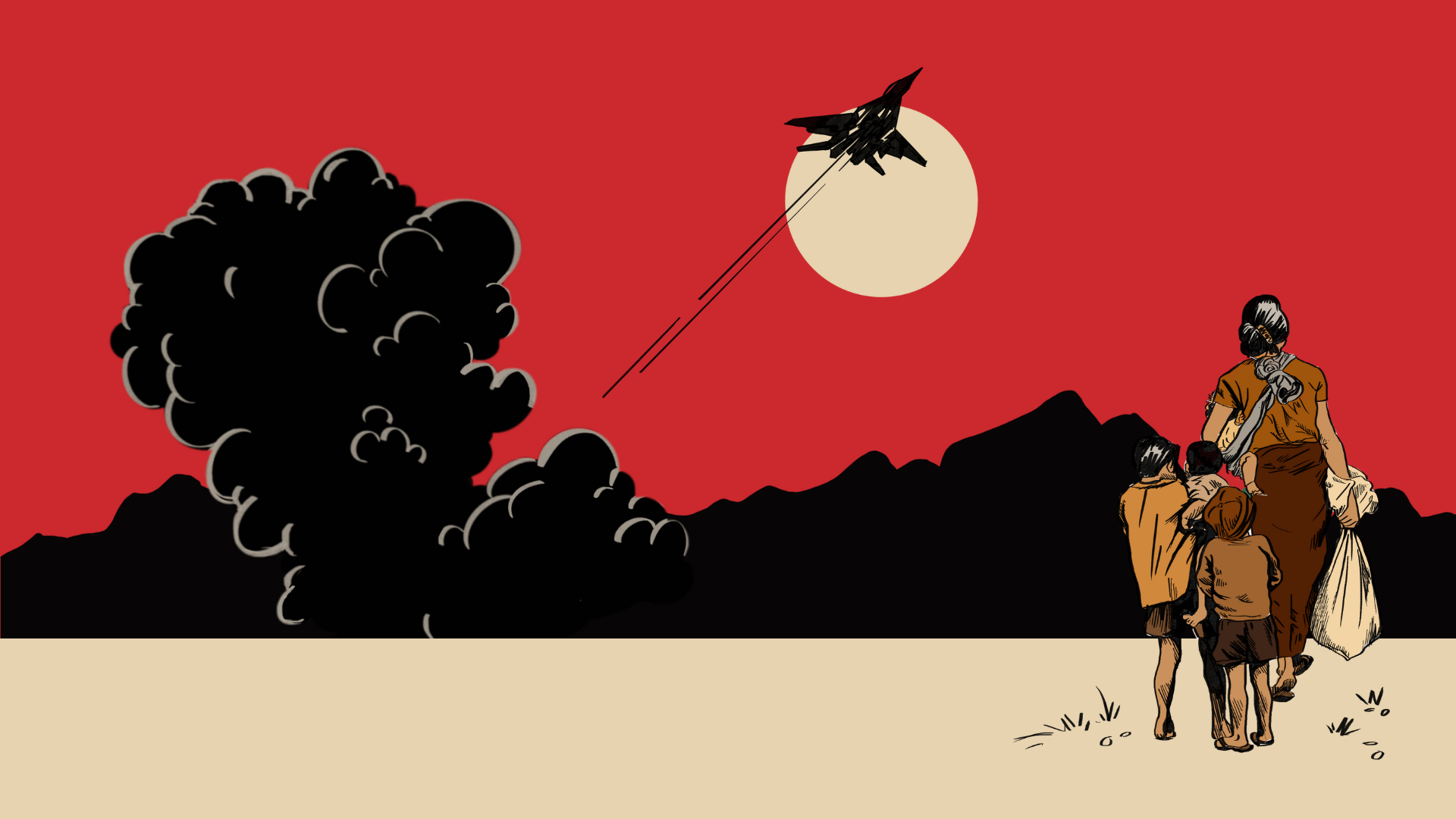DILI, Timor-Leste–On 27 May 2024, in the spirit of solidarity with the people of Myanmar, the Provedor dos Direitos Humanos e Justiçe/Provedor for Human Rights and Justice (PDHJ) of Timor-Leste hosted the ‘Public Hearing on the Human Rights Crisis in Myanmar.’
The public hearing raised awareness on the human rights and humanitarian crisis in Myanmar. It also provided a safe space for human rights defenders–of diverse backgrounds–from Myanmar to testify in their own words on the atrocities committed by the junta. The testimonies also showcased their hope for the future of Myanmar as well as their calls to action for the Government of Timor-Leste and the international community.
The PDHJ is Timor-Leste’s national human rights institution (NHRI). NHRIs are independent bodies–created by a country’s law or constitution–which are mandated to promote and protect human rights in compliance with the Paris Principles.
The public hearing was presided by PDHJ Chief Ombudsman Virgilio da Silva Guterres and Deputy Ombudsman Maria Marilia X. C. de O. da Costa. It was co-hosted by Hugo Fernandes, the Chief Executive Officer of Centro Nacional Chega (CNC).
Courageous voices from the ground
More than three years since the attempted coup in February 2021, Myanmar has become a battleground of people’s resistance–the biggest one in the country’s history –against the military junta.
The people’s resistance movement is gaining ground while the junta is losing strength. During this crucial stage, the international community must offer more solidarity and concrete actions to echo the voices of the people of Myanmar; their quest to bring justice and accountability for the victims of the junta’s atrocities; and their courageous calls for a successful transition and rebuilding of Myanmar’s federal democracy.
The public hearing presented testimonies from seven human rights defenders (HRDs) from Myanmar: 1) a woman human rights defender from Karen State in eastern Myanmar; 2) a former political prisoner; 3) a woman human rights defender from Chin State in western Myanmar bordering India; 4) a youth peace activist from Kachin State in northern Myanmar; 5) a women’s rights activist from Karenni State in eastern Myanmar; 6) a Rohingya youth human rights activist; and 7) a Rohingya human rights advocate for accountability and justice.
In their own words (and language), the HRDs highlighted the harsh living conditions of local communities, women, youth, journalists, political prisoners, and ethnic minorities such as the Rohingya after the military’s coup attempt.
They detailed the human rights violations committed by the junta, which has killed more than 5,000 people and arbitrarily detained more than 26,000 political prisoners, including women and children. These violations also include the imposition of the death penalty, extrajudicial killings, arbitrary arrests, abduction, torture, harassment, sexual violence, airstrikes, and the junta’s blockage of humanitarian aid to over 2.7 million internally displaced persons.
All HRDs underscored how the atrocities committed by the junta have violated their human rights, including their right to life, health, education, and sustainable development as well as fundamental freedoms.
The HRDs testified how they–alongside colleagues–are being targeted by the junta for their human rights work and participation in peaceful demonstrations. Such violations have been exacerbated by the junta’s forced conscription, which is driving tens of thousands of youth to either flee the country or be forced against their will to serve the military.
The testimonies also included inspiring stories of strength, aspirations, resistance, and hope that liberty, human rights and justice would once again prevail in Myanmar.
The HRDs called on the international community to provide more support–including urgently needed humanitarian assistance–to the people of Myanmar and to take concrete action against the military junta. They also expressed gratitude for Timor-Leste’s–the government and its people–unwavering support and solidarity with the Myanmar people’s fight for democracy and human rights.
Responses from the PDHJ
In his remarks, the Chief-Ombudsman of the PDHJ, Mr. Da Silva Guterres emphasised the Timorese people’s ‘principal and historical responsibility’ to protect human rights and support the struggles of the oppressed, including the people of Myanmar.
The PDHJ also reiterated its strategic role as the current Chair of the Southeast Asia National Human Rights Institution Forum (SEANF) to engage with other NHRIs to address the human rights crisis in Myanmar.
During the open dialogue, questions from participants ranged from exploring the specific role of PDHJ in addressing the crisis in Myanmar to the effectiveness of ASEAN regional human rights mechanisms, particularly the ASEAN Intergovernmental Commission on Human Rights (AICHR).
The AICHR has been publicly silent on Myanmar’s decades-long situation of grave human rights violations, especially in the past three years since the attempted coup.
‘As the Provedor of Human Rights and Justice of Timor Leste and the Chair of SEANF, we can engage with parliament and government officials both within our country and across ASEAN to address the human rights crisis in Myanmar. This includes highlighting the challenges faced by human rights defenders in Myanmar, which must be prioritised. While Timor Leste aspires to join ASEAN, this should not be a reason for us to overlook the situation in Myanmar,’ said PDHJ Chief Ombudsman Da Silva Guterres.
The PDHJ’s public hearing was supported by CNC, Progressive Voice, the Asian Forum for Human Rights and Development (FORUM-ASIA), Alternative ASEAN Network on Burma (ALTSEAN-Burma), and Initiatives for International Dialogue (IID).
#
For media inquiries, please contact:
- Khin Ohmar, Progressive Voice, [email protected]
- Communication and Media Programme, FORUM-ASIA, [email protected]
- Debbie Stothard, ALTSEAN-Burma, [email protected]
- Gus Miclat, Initiatives for International Dialogue (IID), [email protected]




